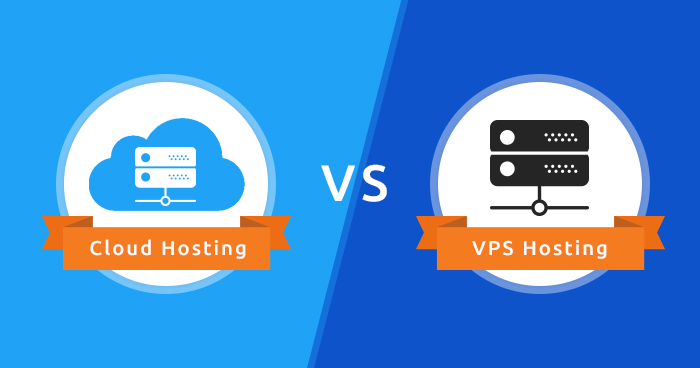
Planning to begin the adventure of starting your own website? Or restructuring and thinking about the current website that can no longer hold what shared has to offer? It is time to think about Virtual Private Servers (VPS) or even cloud for that matter. Considering both offer amazing reliability and performance, let us understand that how are these both different from each other and determine which out of the two matches with your website needs.
VPS hosting — VPS stands for Virtual Private Server. VPS uses a physical server that has been partitioned into several small virtual servers. To make it easier for you, in India, VPS hosting as a condo. Just like you share the same building as other residents but are responsible for the maintenance of your own property, in a similar way you can configure your operating system and software the way you like in spite of sharing the server with a number of other users. Simple.
VPS benefits —
- Economical — In India, VPS hosting is a lot more affordable than servers that are dedicated and you pay only for what you use.
- Customization — VPS hosting gives you the freedom to manage your server as you like, just like dedicated servers where you have all the control over OS and software.
- Privacy — Hosting a VPS is highly secure. Nobody can access your files that are private, even if your clients have full rights on the server.
VPS disadvantages —
- Performance issue — Because of the virtual segments that exist on a physical server, there is a possibility that performance will fluctuate if other VPS uses a lot of resources.
- Configuration delay — If you choose unmanageable VPS, there may be some difficulties in configuration and takes longer for the website to be up and running.
Who can use VPS hosting?
VPS hosting works best for those who want complete control on their website and looking out for dedicated resources as well. You can understand this in detail by going through the structure and architecture of VPS.
Cloud Hosting
A cloud server is very similar to the VPS hosting environment with one major difference. Unlike VPS, cloud hosting is the concept of hosting that allows an unlimited number of machines to act as one system. This, in essence, means nothing but fetching resources as well as the power to process from a set of physical servers which will lead to high traffic on the website. And you know what the best part is? If one server goes down, other servers will help to fill the gap.

Pros of cloud hosting —
- Economical — It is economical as you pay only for what you use.
- Reliability — Since the website is hosted on various other servers, even if one server goes down, it will not lead to the inaccessibility of the website.
- Flexible and scalable — Unlike the single server, resources are available in real-time.
Cons of cloud hosting —
- Speed — It can be slow. With many other websites running on the same software, the load time of the page may suffer.
- Security — Since there are so many websites using the same server, and if anyone of them have some amount of memory leakage, chances are that your site can also suffer.
Who can use cloud hosting?
Cloud hosting works really well for website owners looking for flexibility and scalability.
Conclusion: VPS hosting or cloud hosting, what should you use?
In India, VPS hosting works amazingly well for the websites that have outgrown their shared hosting server and looking to extend the same. VPS works if you are not looking for high traffic and is mainly required for hosting
Cloud hosting works really well that have spikes or variable traffic levels. Additionally, cloud hosting provides a great amount of scalability and hence chances of getting the website crashed if one server is down is really less.
| VPS Hosting | Cloud Hosting | |
| Scalability | No | Yes |
| Low Cost | Yes | Yes |
| Flexible | No | Yes |
| Secure | Yes | Yes |
| Real-time solution | No | Yes (in managed hosting) |
| Performance | Can’t say | Fast |
| Reliability | Yes | Yes |
| Server management | Yes | Yes |















